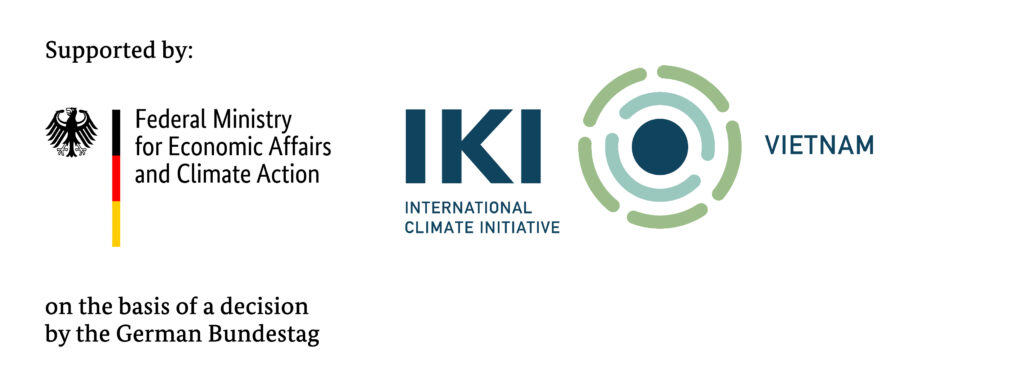Pursuant to the Law on Environmental Protection dated June 23, 2014 (which was amended in 2020) and following requirements by the International Civil Aviation Organisation (ICAO), the Ministry of Transport (MoT) has issued Circular 22/2020/TT-BGTVT on the Management of Fuel Use and CO2 Emission of Aircrafts in Civil Aviation Operation of Viet Nam. This Circular and guideline regulate collection and reporting on fuel use and CO2 emissions from aircraft in the civil aviation sector in Viet Nam. The Support to Viet Nam to Implement the Paris Agreement project (VN-SIPA) provided advice to the Civil Aviation Authority of Vietnam (CAAV) in developing this Circular and a MRV guideline on implementation of the Circular. Concrete criteria and a verification process were defined regarding implementing MRV on fuel consumption and considering them as a foundation for the Carbon Offsetting and Reduction Scheme for International Aviation (CORSIA) by Viet Nam aircraft operators.
Based on the implementation experience with the circular so far, the CAAV is step-by-step learning to optimize fuel consumption and the CO2 emissions management system for civil aviation operation. Recently, VN-SIPA conducted dissemination activities on the MRV system for fuel consumption and CO2 management for airplanes in the civil aviation sub-sector. The project also supports the CAAV in developing a training course on GHG emission inventory in accordance with the requirements of Resolution No. 06/2022/ND-CP and Decision No. 01/2022/QD-TTg.
Specifically, the Circular provides guidance for aircraft operators that are responsible for collecting, monitoring and reporting fuel use and CO2 emission of international and domestic flights to the CAAV. Emission reports for international flights and domestic flights with more than 10,000 tonnes of annual CO2 emissions generated from aircrafts with more than 5,700 kg of maximum take-off weight must be submitted to the CAAV and prioritise the verification process for international emission reporting. At present, Verifavia and Bureau Veritas (BV) are chosen as the two accredited independent verification bodies to verify aircraft operators’ annual carbon emissions data in Viet These two organisations play an important role in helping CAAV to achieve CORSIA-compliant MRV of emissions and offsetting. The CAAV will review emission reports submitted by the aircraft operators and verification reports from Verifavia/BV based on the requirements of the ICAO. The improvement of reporting capacity and the fuel consumption and C02 emission management system will be a premise to help Vietnam’s aviation industry moving towards the goal of carbon-neutrality by 2050.
